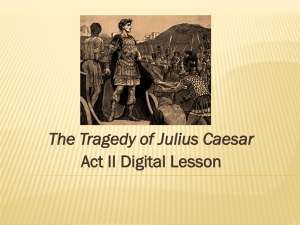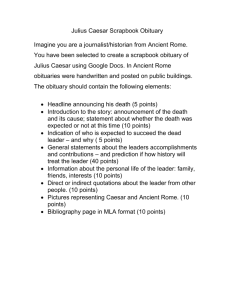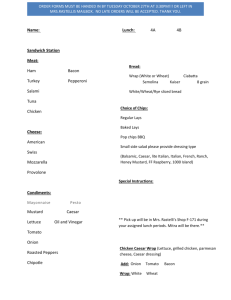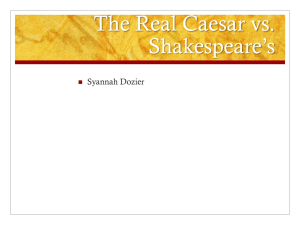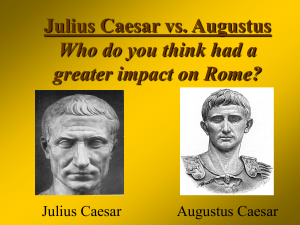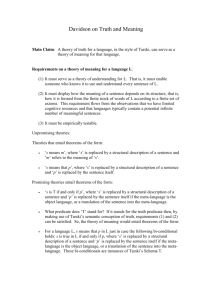GTA challenge Gambler`s fallacy Q: If you flip a coin what are the
advertisement
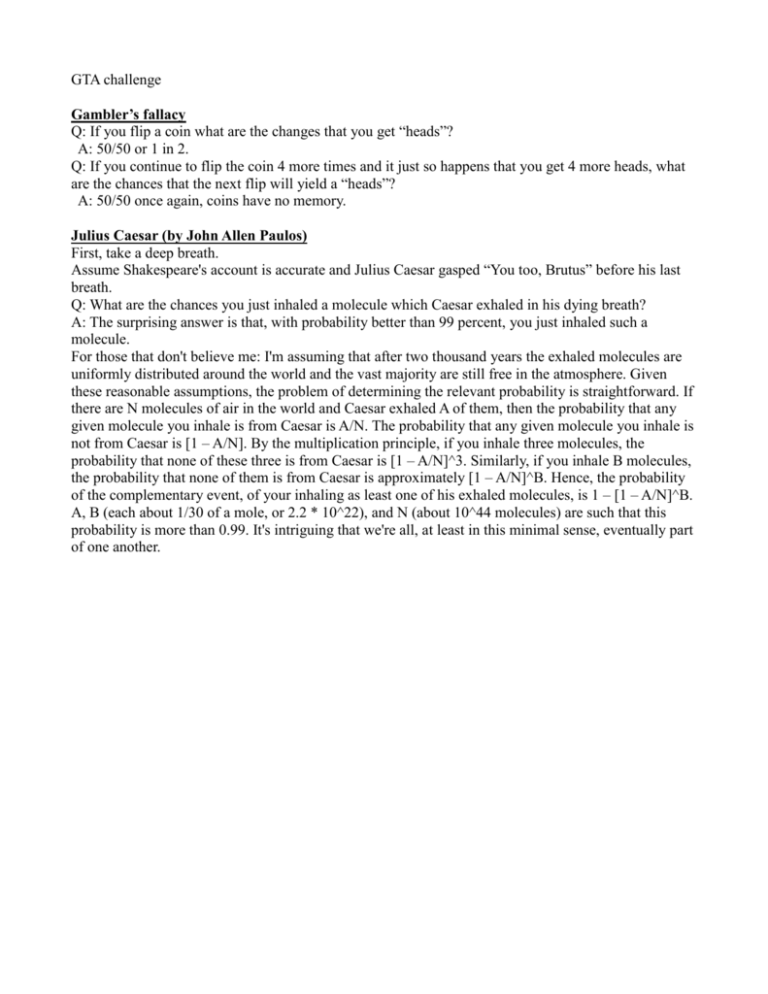
GTA challenge Gambler’s fallacy Q: If you flip a coin what are the changes that you get “heads”? A: 50/50 or 1 in 2. Q: If you continue to flip the coin 4 more times and it just so happens that you get 4 more heads, what are the chances that the next flip will yield a “heads”? A: 50/50 once again, coins have no memory. Julius Caesar (by John Allen Paulos) First, take a deep breath. Assume Shakespeare's account is accurate and Julius Caesar gasped “You too, Brutus” before his last breath. Q: What are the chances you just inhaled a molecule which Caesar exhaled in his dying breath? A: The surprising answer is that, with probability better than 99 percent, you just inhaled such a molecule. For those that don't believe me: I'm assuming that after two thousand years the exhaled molecules are uniformly distributed around the world and the vast majority are still free in the atmosphere. Given these reasonable assumptions, the problem of determining the relevant probability is straightforward. If there are N molecules of air in the world and Caesar exhaled A of them, then the probability that any given molecule you inhale is from Caesar is A/N. The probability that any given molecule you inhale is not from Caesar is [1 – A/N]. By the multiplication principle, if you inhale three molecules, the probability that none of these three is from Caesar is [1 – A/N]^3. Similarly, if you inhale B molecules, the probability that none of them is from Caesar is approximately [1 – A/N]^B. Hence, the probability of the complementary event, of your inhaling as least one of his exhaled molecules, is 1 – [1 – A/N]^B. A, B (each about 1/30 of a mole, or 2.2 * 10^22), and N (about 10^44 molecules) are such that this probability is more than 0.99. It's intriguing that we're all, at least in this minimal sense, eventually part of one another.
